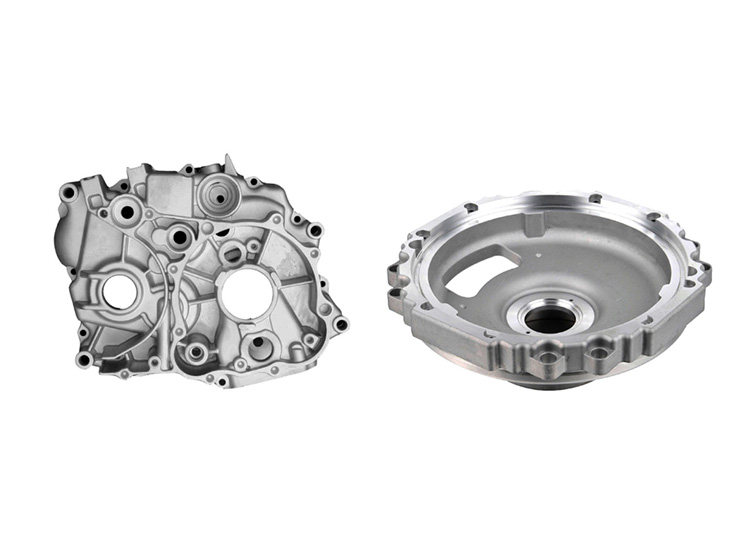The Greatest Guide To Alcast Company
The 2-Minute Rule for Alcast Company
Table of Contents9 Easy Facts About Alcast Company ExplainedSome Known Facts About Alcast Company.Not known Details About Alcast Company A Biased View of Alcast Company5 Easy Facts About Alcast Company ExplainedAlcast Company Things To Know Before You Get This
The subtle distinction lies in the chemical web content. Chemical Comparison of Cast Aluminum Alloys Silicon advertises castability by minimizing the alloy's melting temperature and improving fluidity during spreading. It plays a critical duty in enabling complex molds to be loaded properly. Additionally, silicon adds to the alloy's stamina and use resistance, making it useful in applications where toughness is essential, such as vehicle parts and engine elements.It also boosts the machinability of the alloy, making it much easier to refine into completed items. In this method, iron adds to the total workability of aluminum alloys.
Manganese adds to the stamina of light weight aluminum alloys and boosts workability. Magnesium is a lightweight component that supplies toughness and impact resistance to aluminum alloys.
Alcast Company - The Facts
Zinc improves the castability of light weight aluminum alloys and aids manage the solidification procedure during spreading. It improves the alloy's toughness and firmness.

The key thermal conductivity, tensile strength, yield toughness, and elongation vary. Select appropriate raw products according to the performance of the target product produced. Amongst the above alloys, A356 has the greatest thermal conductivity, and A380 and ADC12 have the most affordable. The tensile limitation is the opposite. A360 has the very best yield toughness and the highest possible prolongation rate.
Our Alcast Company Ideas

In accuracy casting, 6063 is well-suited for applications where complex geometries and high-grade surface coatings are paramount. Examples include telecommunication rooms, where the alloy's remarkable formability allows for sleek and cosmetically pleasing styles while keeping architectural integrity. In a similar way, in the Lighting Solutions sector, precision-cast 6063 parts develop elegant and efficient lighting fixtures that call for intricate shapes and great thermal efficiency.
The A360 shows superior elongation, making it excellent for complicated and thin-walled components. In accuracy spreading applications, A360 is appropriate for markets such as Customer Electronics, Telecommunication, and Power Tools.
Alcast Company - Questions
Its distinct residential or commercial properties make A360 a useful choice for precision casting in these markets, enhancing product durability and top quality. aluminum metal casting. Aluminum alloy 380, or A380, is a commonly used spreading alloy with several distinctive characteristics.
In accuracy spreading, light weight aluminum 413 radiates in the Customer Electronic Devices and Power Equipment markets. This alloy's superior deterioration resistance makes it an outstanding selection for exterior applications, making sure resilient, sturdy products in the discussed industries.
Everything about Alcast Company
The light weight aluminum alloy you choose will significantly influence both the spreading procedure and the residential properties of the last product. Because of this, you have to make your decision very carefully and take an enlightened strategy.
Identifying one of the most suitable aluminum alloy for your application will suggest evaluating a broad variety of characteristics. These relative alloy qualities adhere to the North American Die Casting Organization's standards, and we have actually split them into 2 classifications. The initial classification addresses alloy characteristics that impact the manufacturing process. The second covers qualities impacting the properties of the end product.
The 5-Minute Rule for Alcast Company
The alloy you select for die casting straight affects several facets of the casting process, like how easy the alloy is to work with and if it is susceptible to casting issues. Hot cracking, additionally called solidification fracturing, is a typical die spreading defect for light weight aluminum alloys that can result in internal or surface-level splits or fractures.
Particular light weight aluminum alloys are much more at risk to hot fracturing than others, and your choice needs to consider this. One more usual defect located in the die casting of aluminum is die soldering, which is when the cast stays with the die wall surfaces and makes ejection difficult. It can damage both the actors and the die, so you must search for alloys with high anti-soldering residential properties.
Rust resistance, which is already a noteworthy feature of light weight aluminum, can vary significantly from alloy to alloy and is an important particular to consider depending on the environmental problems your item will certainly be exposed to (Aluminum Casting). Put on resistance is an additional residential property typically looked for in light weight aluminum items and can differentiate some alloys